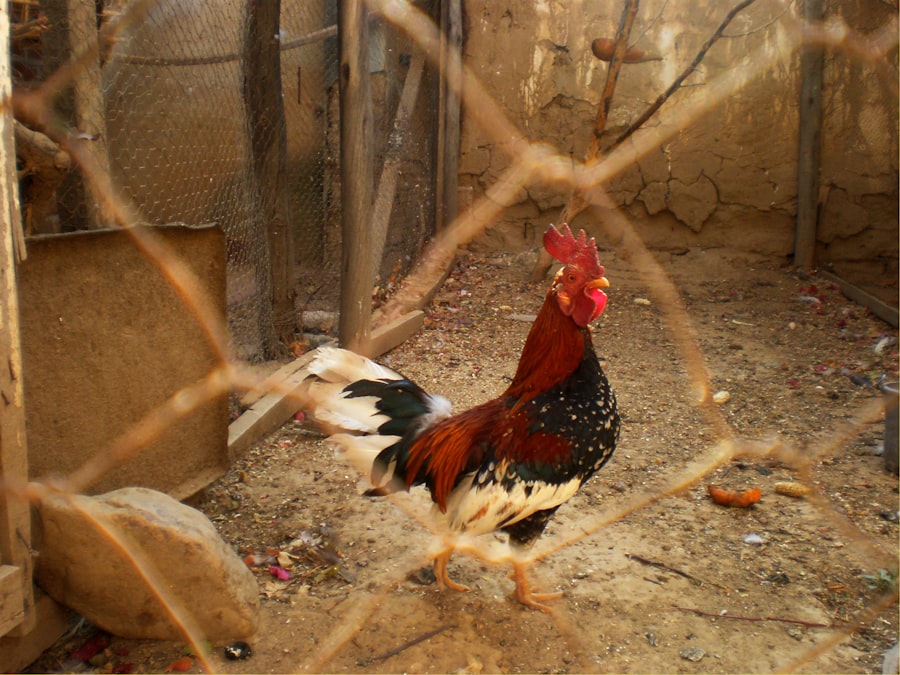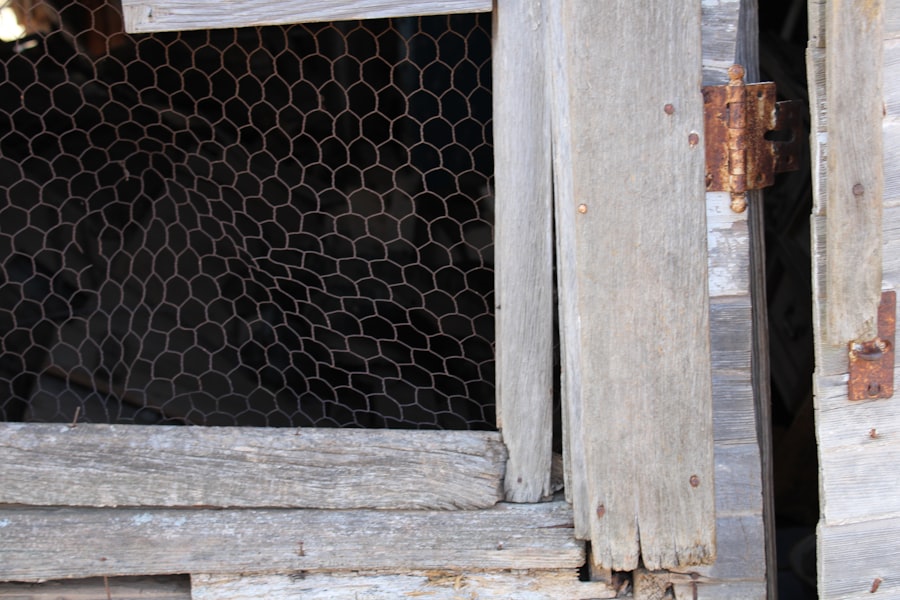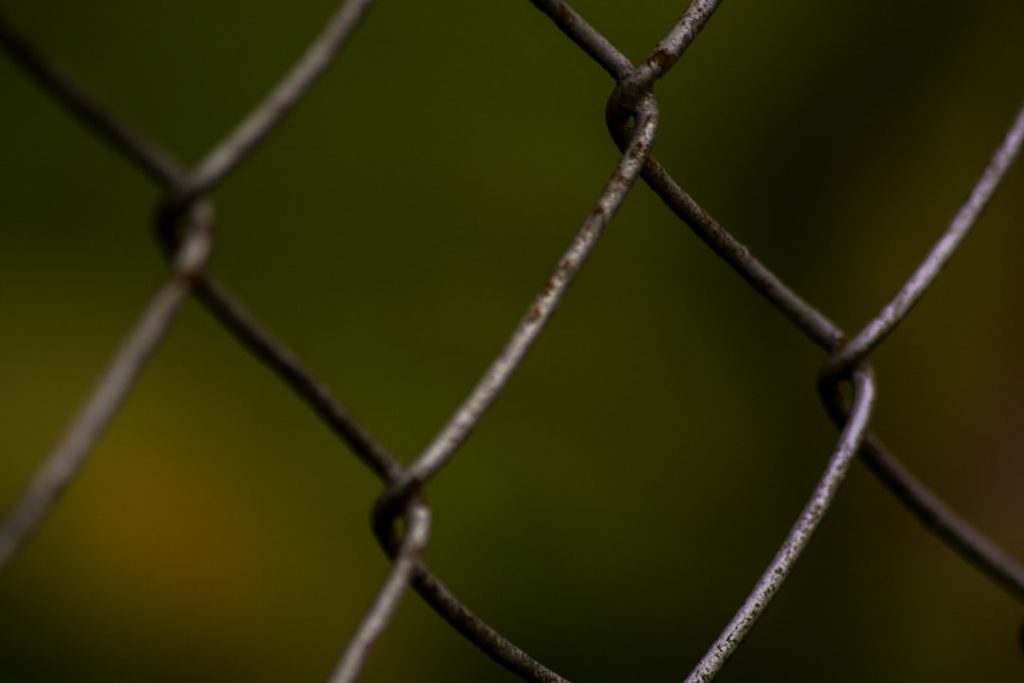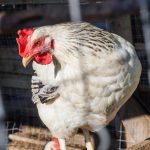Chickens are inquisitive and gregarious animals known for their foraging habits. They constantly search for food, scratching and pecking at the ground to find insects, seeds, and other edible items. This instinctive behavior can sometimes result in damage to gardens and landscaping, as chickens may unintentionally uproot plants or disturb mulch and soil.
Certain plants, such as leafy greens and berries, are particularly attractive to chickens, potentially making them problematic in garden environments. Chickens are creatures of habit, often returning to familiar food sources or comfortable roosting spots. This tendency can make it difficult to prevent them from accessing areas where they cause damage.
Understanding chicken behavior is crucial for developing effective strategies to keep them out of gardens and landscaping. By recognizing their natural instincts and tendencies, it becomes possible to create solutions that discourage harmful behavior without causing distress to the birds.
Table of Contents
- 1 Choosing the Right Type of Mulch
- 2 Creating Physical Barriers
- 3 Using Natural Deterrents
- 4 Implementing Repellents
- 5 Regular Maintenance and Monitoring
- 6 Seeking Professional Help
- 7 FAQs
- 7.1 What are some effective ways to keep chickens out of your mulch?
- 7.2 Why is it important to keep chickens out of your mulch?
- 7.3 What are some natural repellents that can be used to keep chickens out of mulch?
- 7.4 How can physical barriers be used to keep chickens out of mulch?
- 7.5 Are there any plants that can be used to deter chickens from entering mulch areas?
Key Takeaways
- Chickens are social animals and their behavior is influenced by their environment and interactions with other chickens.
- When choosing mulch for your garden, consider factors such as moisture retention, weed suppression, and nutrient contribution.
- Physical barriers such as fences and netting can effectively keep chickens out of certain areas of the garden.
- Natural deterrents like predator decoys, reflective objects, and strong-smelling plants can help keep chickens away from specific areas.
- Repellents such as sprays and granules can be used to discourage chickens from entering certain areas of the garden.
- Regular maintenance and monitoring of the garden are essential for keeping chickens at bay and ensuring the effectiveness of deterrents.
- If chicken infestation becomes overwhelming, seeking professional help from pest control experts or animal control services may be necessary.
Choosing the Right Type of Mulch
Attractive Mulch Options to Avoid
Using these types of mulch in areas where chickens are present can actually attract them to the area rather than deter them. Chickens are drawn to the seeds and insects found in straw and hay, which can lead to damage to your garden and landscaping.
Effective Mulch Options to Discourage Chickens
Instead, opting for mulch options that are less appealing to chickens can help to discourage them from causing damage. For example, using wood chips or bark mulch can be effective, as these materials are less likely to contain food sources that would attract chickens.
Creating a Physical Barrier
Additionally, using heavier mulch materials, such as rocks or gravel, can create a physical barrier that makes it more difficult for chickens to scratch and peck at the ground, further deterring them from causing damage. By choosing the right type of mulch, you can help protect your garden and landscaping from chicken damage.
Creating Physical Barriers

Creating physical barriers is another effective strategy for keeping chickens out of gardens and landscaping. This can be achieved in a variety of ways, such as using fencing or netting to enclose garden beds or other vulnerable areas. Chicken wire or hardware cloth can be used to create a barrier around plants or landscaping features that chickens are targeting, preventing them from accessing these areas and causing damage.
In addition to traditional fencing materials, there are also creative options for creating physical barriers that can be both functional and aesthetically pleasing. For example, using decorative fencing or trellises can add visual interest to a garden while also serving as a barrier to keep chickens at bay. Incorporating raised beds or containers for planting can also help to create a physical barrier that is more challenging for chickens to access, reducing the likelihood of damage to plants and landscaping.
Using Natural Deterrents
In addition to physical barriers, natural deterrents can also be effective for keeping chickens out of gardens and landscaping. Chickens have sensitive senses of smell and taste, and there are certain scents and flavors that they find unpleasant or unappealing. By incorporating these natural deterrents into the garden environment, it is possible to discourage chickens from causing damage without causing them harm.
One common natural deterrent for chickens is the use of strong-smelling herbs and spices, such as garlic, onion, or hot peppers. These scents can be off-putting to chickens and may discourage them from venturing into areas where these deterrents are present. Additionally, there are commercial products available that are specifically designed to repel chickens using natural ingredients, such as essential oils or plant extracts.
These products can be applied to plants or landscaping features to create an unpleasant experience for chickens, deterring them from causing damage.
Implementing Repellents
In addition to natural deterrents, there are also commercial repellents available that can be effective for keeping chickens out of gardens and landscaping. These products typically contain ingredients that are designed to create an unpleasant experience for chickens without causing them harm. For example, there are sprays and granules available that contain bitter-tasting substances or strong scents that are unappealing to chickens.
When using commercial repellents, it is important to follow the manufacturer’s instructions carefully to ensure that they are applied safely and effectively. It is also important to reapply repellents regularly, especially after rain or watering, as their effectiveness may diminish over time. By implementing repellents strategically throughout the garden and landscaping, it is possible to create an environment that is unappealing to chickens, reducing the likelihood of damage.
Regular Maintenance and Monitoring

Maintaining an Unappealing Environment
By staying on top of maintenance tasks such as weeding, pruning, and cleaning up fallen fruits or vegetables, it is possible to reduce the attractiveness of the garden environment to chickens.
Identifying Areas for Improvement
Regularly inspecting the garden for signs of chicken activity, such as scratching or pecking marks, can help to identify areas that may need additional protection or deterrents.
Staying Vigilant and Adapting Deterrents
Monitoring the garden environment for signs of chicken activity can also help to identify any weaknesses in existing deterrents or barriers. For example, if chickens are finding a way to access a protected area, it may be necessary to reinforce barriers or adjust deterrents to make them more effective. By staying vigilant and addressing any issues promptly, it is possible to maintain a garden environment that is less appealing to chickens, reducing the likelihood of damage.
Seeking Professional Help
In some cases, seeking professional help may be necessary for effectively keeping chickens out of gardens and landscaping. Professional pest control experts or landscapers may have specialized knowledge and experience in dealing with chicken-related issues and can provide valuable insights and solutions for addressing the problem. Additionally, professional help may be necessary for implementing more advanced deterrents or barriers, such as electric fencing or motion-activated deterrent devices.
When seeking professional help for chicken-related issues, it is important to choose a reputable and experienced provider who has a track record of success in dealing with similar challenges. By working with professionals who understand the behavior of chickens and have expertise in implementing effective solutions, it is possible to address the problem in a way that is safe and humane for both the chickens and the garden environment. In conclusion, understanding the behavior of chickens is essential for effectively keeping them out of gardens and landscaping.
By choosing the right type of mulch, creating physical barriers, using natural deterrents and repellents, implementing regular maintenance and monitoring practices, and seeking professional help when necessary, it is possible to reduce the likelihood of damage caused by chickens while maintaining a healthy and thriving garden environment. With careful planning and strategic implementation of these strategies, it is possible to coexist with chickens in a way that is mutually beneficial for both humans and birds.
If you’re looking for more information on keeping poultry, you might be interested in an article on whether guinea fowl can live with chickens. This article discusses the compatibility of guinea fowl and chickens, which could be helpful if you’re considering adding guinea fowl to your flock.
FAQs
What are some effective ways to keep chickens out of your mulch?
Some effective ways to keep chickens out of your mulch include using physical barriers such as fencing or netting, using repellents such as citrus peels or vinegar, and providing alternative areas for the chickens to forage.
Why is it important to keep chickens out of your mulch?
It is important to keep chickens out of your mulch because they can scratch and dig in the mulch, causing it to become scattered and potentially damaging plants. Additionally, chickens may eat the mulch, which can be harmful to their health.
What are some natural repellents that can be used to keep chickens out of mulch?
Natural repellents that can be used to keep chickens out of mulch include citrus peels, vinegar, and cayenne pepper. These scents and tastes are unpleasant to chickens and can deter them from entering the mulch area.
How can physical barriers be used to keep chickens out of mulch?
Physical barriers such as fencing or netting can be used to keep chickens out of mulch by creating a boundary that the chickens cannot easily cross. This can help protect the mulch and the plants it surrounds.
Are there any plants that can be used to deter chickens from entering mulch areas?
Plants such as lavender, marigolds, and rosemary are known to have strong scents that can deter chickens from entering mulch areas. Planting these around the perimeter of the mulch can help keep chickens away.
Meet Walter, the feathered-friend fanatic of Florida! Nestled in the sunshine state, Walter struts through life with his feathered companions, clucking his way to happiness. With a coop that’s fancier than a five-star hotel, he’s the Don Juan of the chicken world. When he’s not teaching his hens to do the cha-cha, you’ll find him in a heated debate with his prized rooster, Sir Clucks-a-Lot. Walter’s poultry passion is no yolk; he’s the sunny-side-up guy you never knew you needed in your flock of friends!







